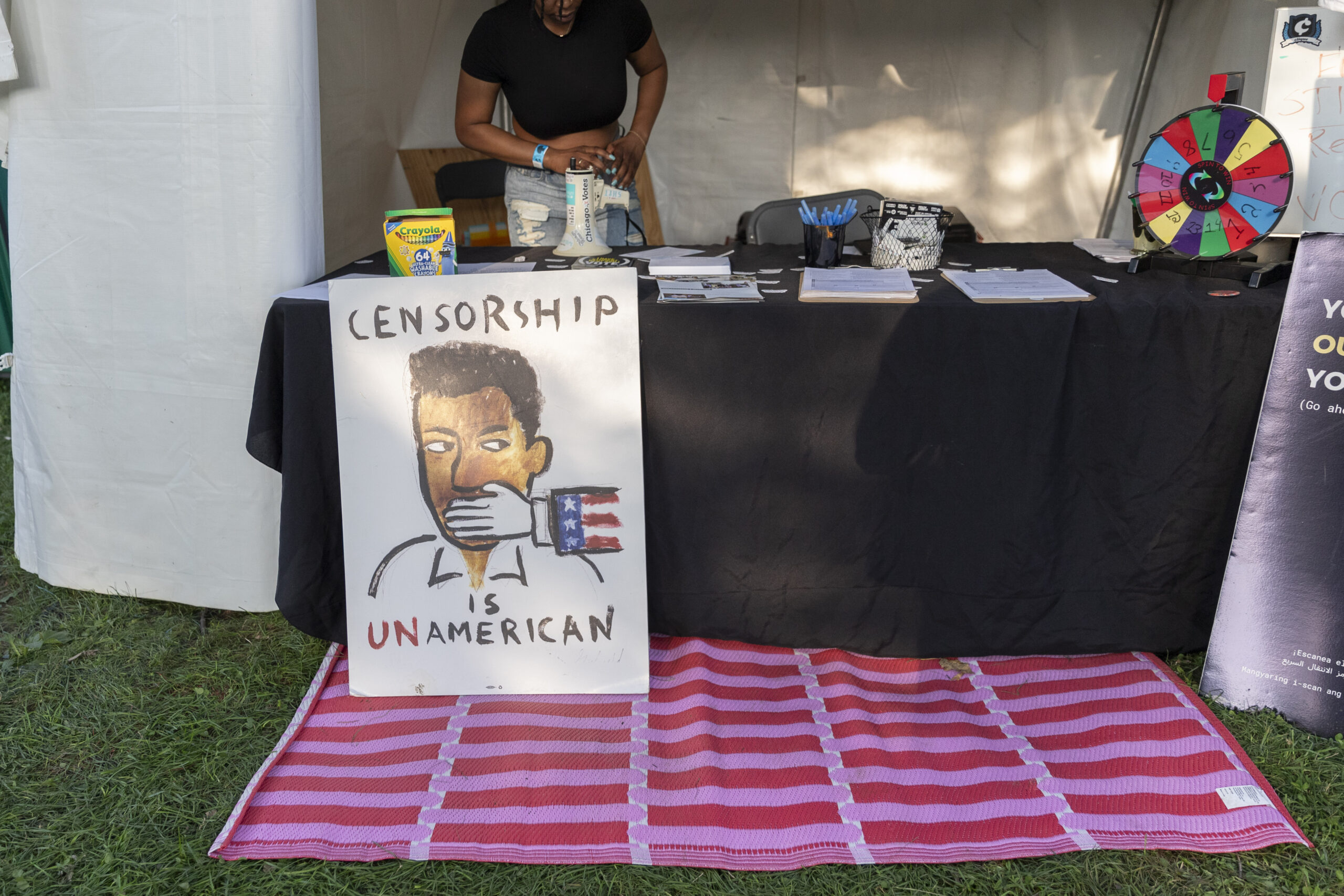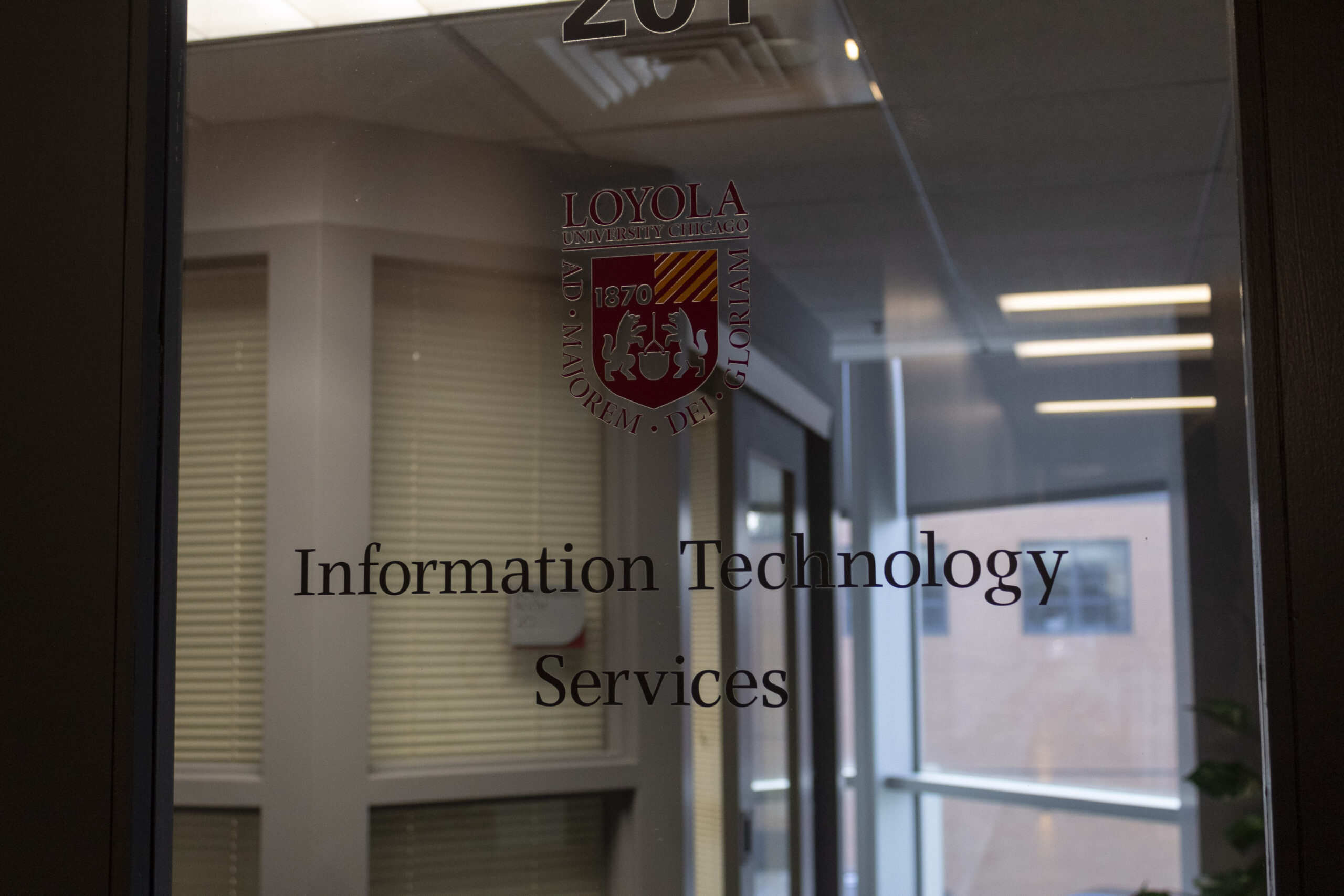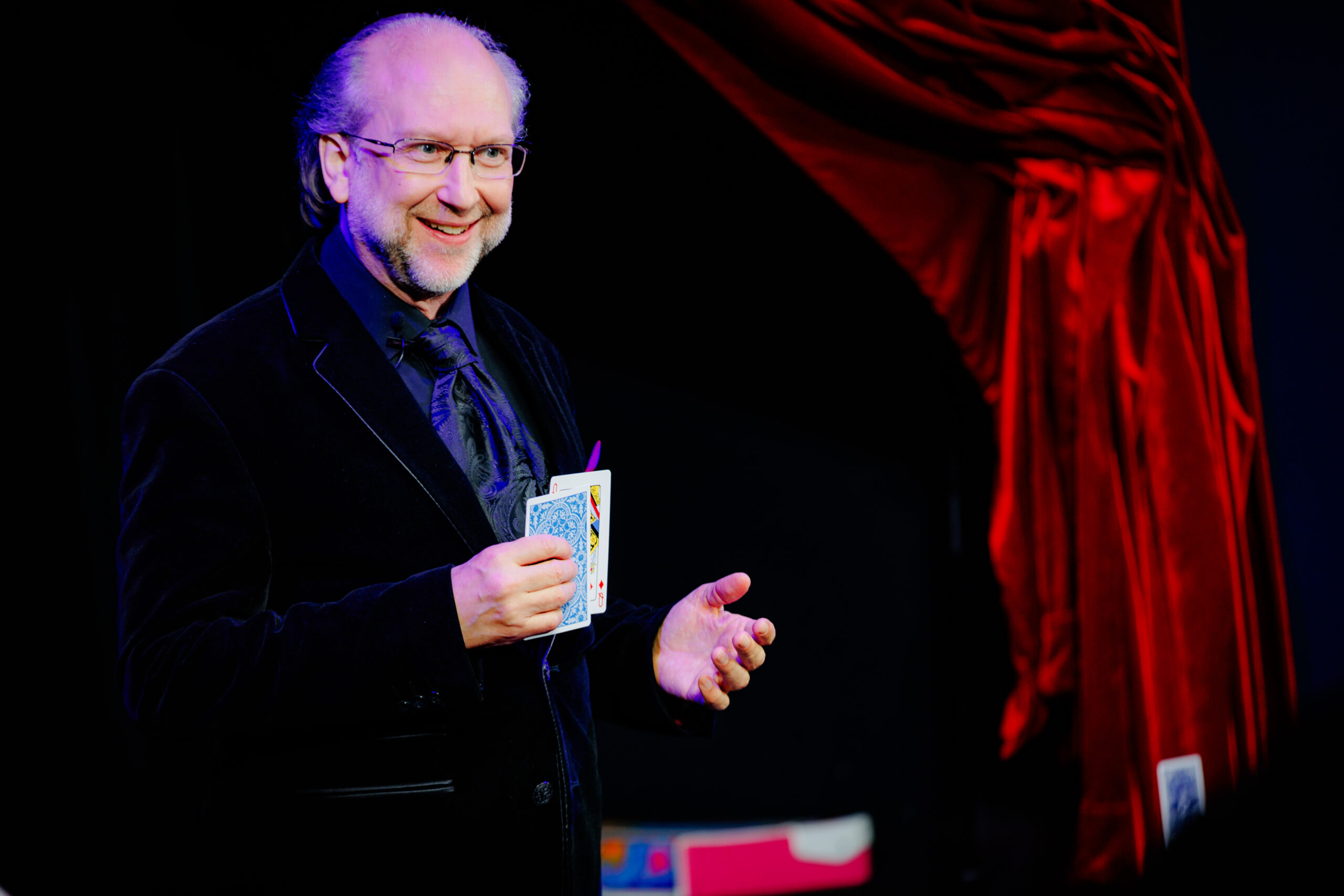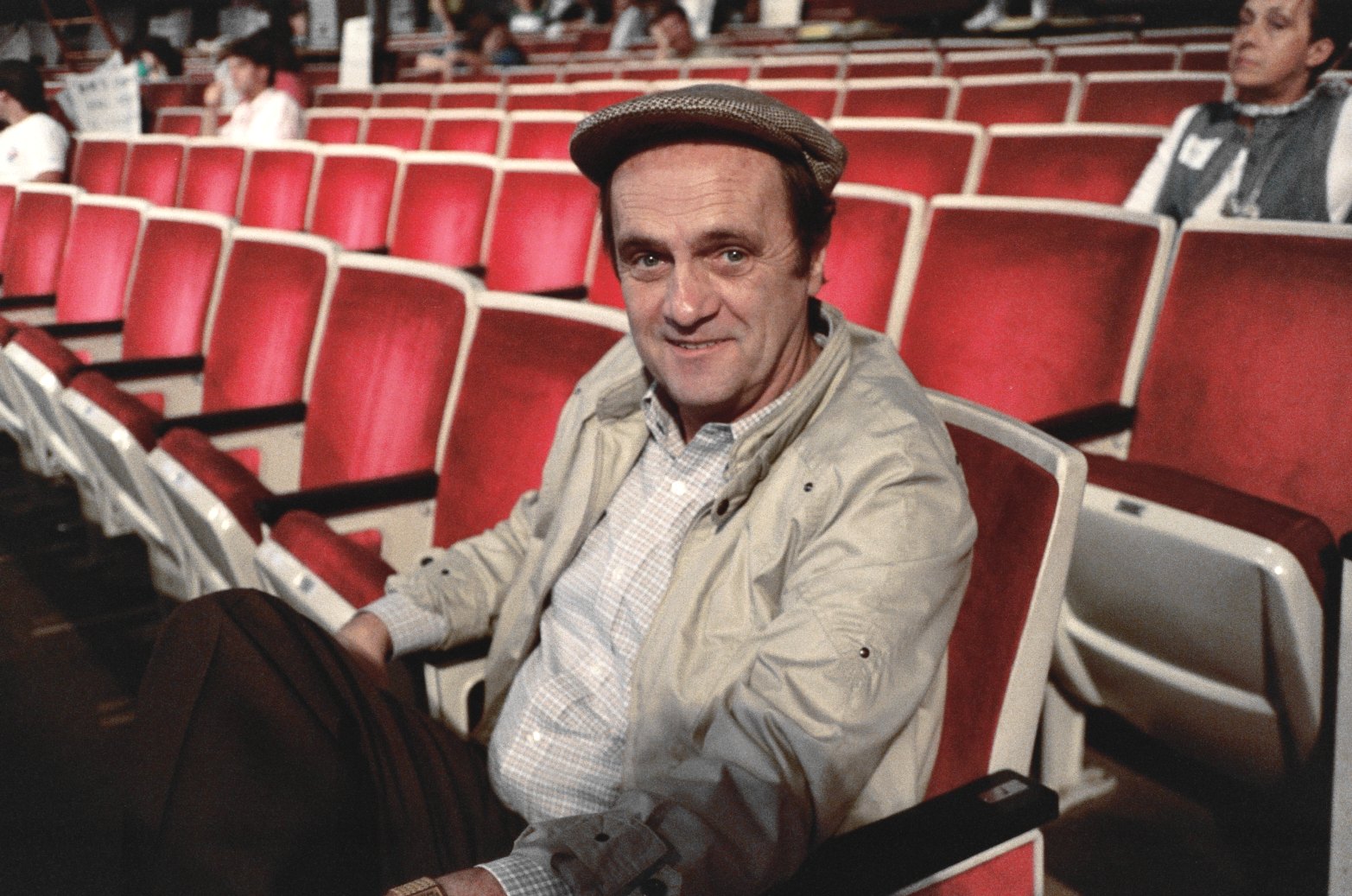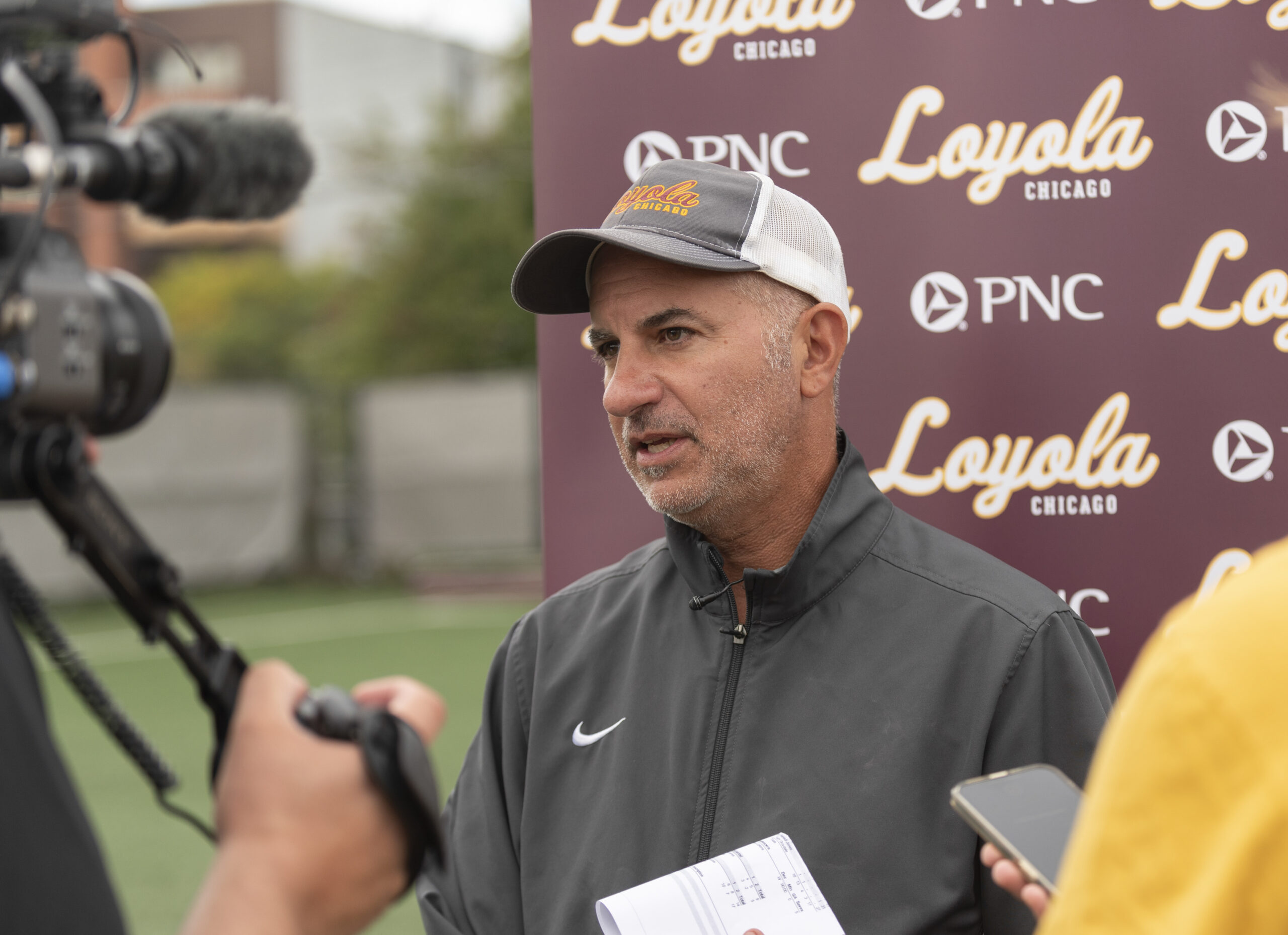Loyola’s chapter of Heart for the Unhoused launched its volunteer program to provide various services to unhoused locals.
Loyola’s chapter of the student-run Heart for the Unhoused launched operations Sept. 16 to provide health testing and resources to unhoused locals.
Heart for the Unhoused is a nationwide student organization that produces resources for unhoused people, with guides created for over 30 cities, according to its website. The group has chapters at other universities including The Ohio State University and The University of Texas at Austin, according to Luke Baumel, a fourth-year student who is co-founder and co-president of Loyola’s chapter.
Baumel said the organization is working with student volunteers and community partners including United Church of Rogers Park and Friendship Center Food Pantry to give unhoused people access to information on their general and cardiovascular health and direct them to care providers.
Loyola’s chapter plans to run health fairs hosted by community partners where unhoused residents can undergo general and cardiovascular health testing and receive health kits and information, according to fourth-year Liam More O’Ferrall, the chapter’s co-founder and community partner coordinator.
Student volunteers will oversee the provision of automated, non-invasive tests which measure unhoused residents’ vital signs, height and weight, visual acuity and other indicators related to cardiovascular health, More O’Ferrall said.
They’ll also provide general health kits containing resources such as wipes, gloves, nail clippers and socks. Oral health kits will also be provided including toothbrushes, toothpaste and xylitol gum, according to More O’Ferrall.
More O’Ferrall said their organization doesn’t provide direct care or diagnoses but will have conversations with unhoused residents about their health results based on information from organizations like the American Heart Association and Stanford Medicine. It will also provide resource guides for free and affordable health care options in the area, More O’Ferrall said.
The proposal to launch a chapter at Loyola was made by the Washington University in St. Louis chapter, according to Baumel.
Baumel said he was contacted by WashU’s chapter in December and worked with his co-president to assemble a leadership team, connect with local homeless shelters and food pantries, and reach out to Loyola administration to get this chapter started.
Heart for the Unhoused became a registered student organization at Loyola in February and held two events last semester. One event introduced the group and another had participants revise a resource guide from WashU about free and affordable healthcare options in Chicago, according to More O’Ferrall.
The group will also hold general body meetings throughout the semester where health kits are assembled, with the first meeting scheduled for Sept. 25, Baumel said.
The organization is aiming to have at least one health fair per week but the frequency of events will depend on the number of volunteers who attend training sessions such as those held on Sept. 16 and 18, according to More O’Ferrall. The next training event will be held Oct. 2, More O’Ferrall said.
Anyone is eligible to volunteer as long as they attend one of the required training events, Baumel said. At trainings, leadership members show volunteers how to use the testing equipment, ensure they’re comfortable interacting in this type of environment and make sure volunteers understand they’re not providing direct care or diagnoses, according to Baumel.
Joseph Tocco, a fourth-year biology major with an EMT certification, attended the Sept. 18 training event. He said it was comprehensive and covered important skills including the use of equipment and guidance on how to responsibly communicate health information to patients.
Student volunteers will oversee the provision of automated, non-invasive tests which measure unhoused residents’ vital signs, height and weight, visual acuity and other health indicators, More O’Ferrall said. They’ll provide general health kits containing resources such as wipes, gloves, nail clippers and socks. Oral health kits will also be provided including toothbrushes, toothpaste and xylitol gum, according to More O’Ferrall.
Fourth-year Avery Carlson said the presence of Chicago’s unhoused population can be felt just by taking a step outside of campus. He said he’s happy to see students at Loyola taking initiative to help with their cardiovascular health.
“I think focusing specifically on heart health could be something that’s really beneficial for the people who need it,” Carlson said. “Getting young people involved is the best way to spread awareness and just get people motivated and knowledgeable about the issue.”
Third-year Megan Kelley said she feels bad when she sees unhoused residents in the area and she thinks anything done to help them is great.
“If all you do is give out food and blankets, that’s great for them,” Kelley said. “But in the long run, you can focus on maybe just a few people and help them that way to have a better quality of life.”
The group’s current mailing list has about 250 students who expressed interest at last month’s student organization fair, which Baumel said includes their 11 e-board members.
More O’Ferrall said he saw significant excitement at the organization fair, especially among upperclassmen looking for health care volunteering opportunities.
Tocco joined Heart for the Unhoused in the spring. He said he’s frequently encountered unhoused people since moving to Chicago and developed a strong desire to help them, and said he thinks the group is a great opportunity for medical students, especially those without certifications, to gain experience and service hours.
“When I was a sophomore and I finally got on campus, I was like ‘Oh my God, I have three years left, I need to do so many things before I’m ready to apply for med school,’” Tocco said. “And I remember getting rejected from so many research opportunities just because there’s thousands and thousands of kids, and like 12 available positions.”
Victoria Prause, a first-year student and incoming member, said she volunteers for St. Thomas of Canterbury’s biweekly soup kitchen through Loyola’s Community Service & Action program. She said she decided to get involved with Heart for the Unhoused after she started volunteering at the soup kitchen.
“So much of the problem is just the awareness of it and access to those resources,” Prause said. “After volunteering at the soup kitchen, I really started seeing that a lot of these people want to have these conversations and they want advice on where to go and how to do things, but they just don’t know how, and right now there’s not the most resources out there for them.”
More O’Ferrall said he sees the organization’s work as a chance to further engage with the community’s unhoused population.
“I think being able to provide this resource from a healthcare perspective and get to have just a little glimpse into that as pre-med students, but just as students in general, is just another great opportunity to kind of engage with the community on a different level,” More O’Ferrall said.
Baumel and More O’Ferrall both said they have a history of volunteering at soup kitchens and other organizations assisting unhoused people. Baumel said Heart for the Unhoused provides an opportunity for him to share his passion for volunteer work.
“Volunteering is a large part of who I am and what I like to do,” Baumel said. “Getting to provide this for students is something that I’m very passionate about.”
Prause said her passion for helping unhoused people is based on her experiences encountering them in her grandmother’s low-income neighborhood as a child. She said she views Heart for the Unhoused as an opportunity to work directly with the unhoused population and it furthers her career goal of helping underserved communities as a physician assistant.
Loyola’s Jesuit mission is central to the group’s activities, which include post-volunteering reflections inviting students to engage with their work to understand why they’re doing it and what they’re learning, according to Baumel.
Baumel said events will be located within a maximum of a one-hour public transportation ride from Loyola’s Lake Shore Campus based on the preferences indicated by members at last semester’s general body meeting.
This story is by Colin Hart and Taylor Zielenbach
Featured image by Aidan Cahill / The Loyola Phoenix




